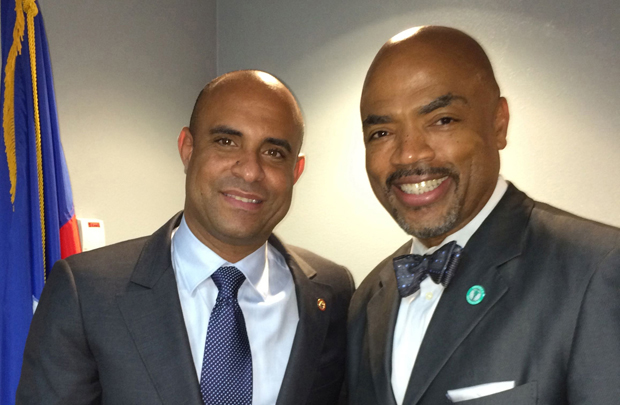In addition to operating on and treating hundreds of Haitian patients, Henri R. Ford, MD, MHA, professor of surgery and vice dean for medical education at the Keck School of Medicine of USC, has been an integral part of the reconstruction and development of Haiti’s medical facilities since the country was devastated by a 7.0 earthquake in 2010.
His latest contribution is helping the country’s leadership develop a new world-class, nation-wide critical care and trauma network to cope with preventable causes of death in the Caribbean country.
“There is a strong need for Haiti to invest in a national trauma critical care network,” explained Ford, who is also vice president and surgeon-in-chief at Cildren’s Hospital Los Angeles.
Ford visits Haiti several times a year to treat patients and work with local surgeons, medical schools and government officials to develop the country’s medical facilities.
He noted, “The healthcare needs in Haiti are great and this will benefit the citizenry and help the overworked physicians providing the care for patients on a daily basis.”
The project will help significantly reduce fatalities in cases involving five preventable causes of death in Haiti, which are major trauma, heart attack, stroke, severe burns and maternal emergencies.
Haiti’s Prime Minister, Laurent Lamothe, with Ford and representatives of the non-profit Project Medishare, by his side, announced plans for the establishment of a National Trauma Critical Care Hospital after meeting with Ford and his team, which was invited to present the trauma network plan to the Haitian ministerial cabinet. Ford will also participate in a commission to develop a long term sustainability plan for the hospital facilities and to cultivate donors.
Ford said that so far, $5 million has been committed to the project by the government of Haiti but he estimates that an additional $15-20 million are needed to complete construction of the NTCC. In addition, it is projected that operational costs to sustain the medical facilities will range between $5 million and $10 million annually.
— Lorenzo Benet/CHLA


